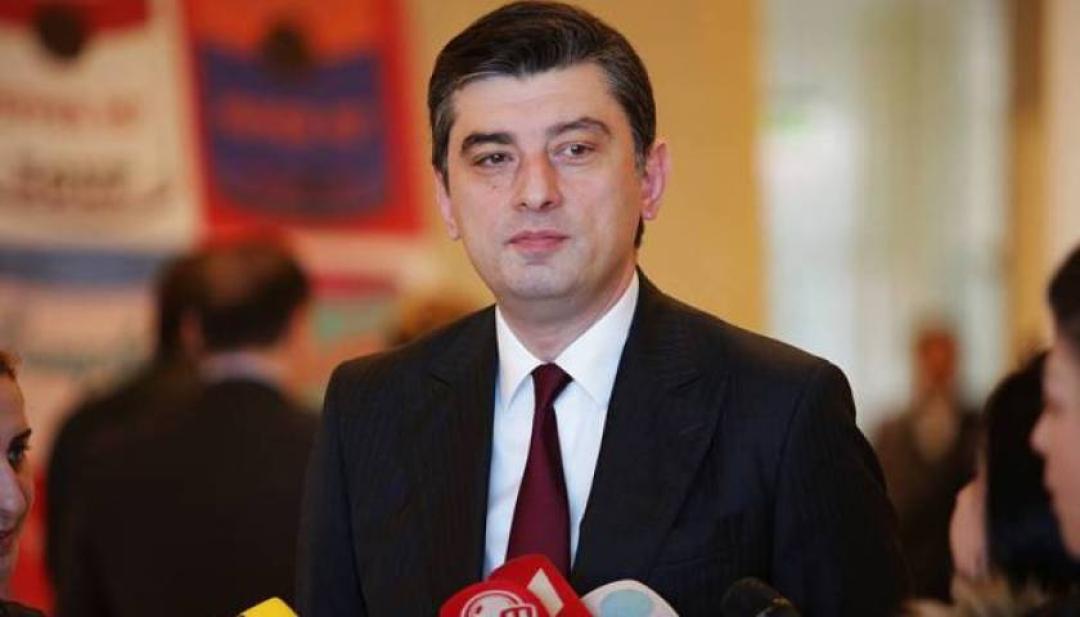
Georgian Opposition Urges Foreign Diplomats to Boycott Parliament’s Inaugural Session

On November 21, Giorgi Gakharia, former Prime Minister of Georgia and leader of the For Georgia party, held a press briefing urging members of the diplomatic corps in Georgia to boycott the inaugural session of the 11th Parliament. His appeal aimed to signal disapproval of what he described as fraudulent election results.
Gakharia specifically called on the U.S. Ambassador and representatives of EU member states to abstain from attending the session, emphasizing that such an act would demonstrate support for Georgian citizens’ right to free and fair elections—a cornerstone of democracy. He highlighted widespread public dissatisfaction with the results of the October 26 elections, which have also faced scrutiny from Western governments and the EU. According to Gakharia, restoring electoral legitimacy requires a comprehensive and independent investigation into the voting process.
The former Prime Minister accused the ruling Georgian Dream (GD) party of systematically rigging the elections through three main tactics: breaching voter privacy, appointing election commission members loyal to GD, and misusing citizens’ personal data. He argued that the crisis could have been avoided if GD had disclosed the voter list; instead, the party initiated what he described as a sham investigation, allegedly exploiting the data for its own purposes.
Gakharia called on Georgian citizens to participate in mass protests during the Parliament’s first session, underscoring the importance of denying legitimacy to the new government until a thorough and impartial investigation is conducted.
In discussing cooperation with other opposition parties that passed the 5% electoral threshold, Gakharia stated that they are united on two key objectives: addressing the alleged election fraud and steering Georgia back toward a pro-European trajectory. However, he acknowledged differing strategies within the opposition regarding protest tactics.
When asked about plans to renounce parliamentary mandates and state funding, Gakharia maintained that such decisions are internal to his party and not subject to external judgment. He criticized attempts by both GD and the United National Movement (UNM) to pressure his party, stating that For Georgia would neither participate in the UNM’s “group withdrawals” nor allow GD to dictate the terms of their parliamentary engagement. He confirmed the party’s decision to refuse state funding, though details of this move remain undisclosed.
Regarding relations with EU representatives, Gakharia warned against punitive measures that could harm Georgian citizens, such as suspending visa liberalization. He argued that such actions would unfairly punish the public and align with GD’s alleged agenda to isolate Georgia from Europe. Instead, he advocated for targeted personal sanctions against corrupt GD officials responsible for undermining the country’s democratic future.
Commenting on opposition calls for new elections under international supervision, Gakharia expressed skepticism, stating that meaningful elections would only be possible if key institutions were reformed. He identified six entities requiring overhaul: the Central Election Commission, the Public Defender, the Personal Data Protection Service, the State Auditor, the Special Investigation Service, and the State Security Service.
Gakharia also addressed recent political controversies, including the United National Movement’s protest against the CEC Chair, which involved splashing black paint. While condemning such tactics, he attributed the radicalization of protests to GD’s alleged violent actions against demonstrators and opposition figures.
When questioned about incidents involving protesters blocking pro-government TV crews, Gakharia condemned any interference with journalistic work, stressing the importance of media freedom and individual choice in employment.
On the topic of anti-LGBTQ+ legislation, Gakharia noted that For Georgia had participated in deliberations on these laws, supporting certain measures related to children’s rights. However, he argued that repealing such legislation now would not address the broader issue of election fraud, which he described as the greater harm inflicted by GD.
See Also


Simonyan: “Armenia Should Trade with Turkey and Azerbaijan Instead of Closing Borders”

Mirzoyan Meets US Deputy Assistant Secretary Joshua Huck

Azerbaijani President Holds Talks with UAE and German Business Delegations on Economic Cooperation

Grigoryan Confirms Armenia’s Readiness to Dissolve OSCE Minsk Group Upon Peace Treaty Signing

